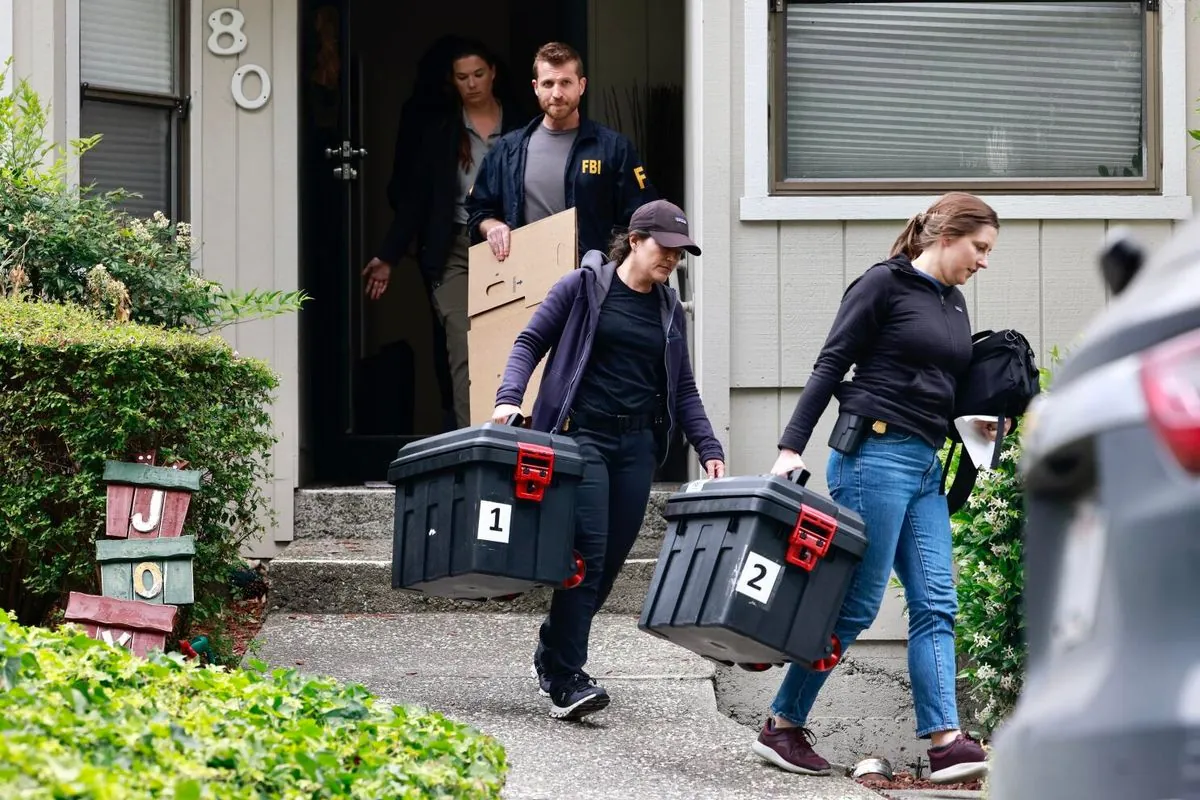In August 2024, the Federal Bureau of Investigation conducted searches at the residences of two American citizens with connections to Russian state media. This action comes amid heightened concerns about potential foreign interference in the upcoming November 2024 U.S. presidential election.
The individuals whose homes were searched are Scott Ritter, a former United Nations weapons inspector, and Dimitri K. Simes, who advised Donald Trump's 2016 presidential campaign. Both have ties to Russian state-owned media outlets.
These searches are part of a broader criminal investigation into Americans working with Russian state television networks, according to unnamed U.S. officials cited by The New York Times. The probe focuses on potential violations of the Foreign Agents Registration Act (FARA), a law enacted in 1938 that requires individuals acting on behalf of foreign principals to disclose their relationships and activities.
Ritter, who began contributing to RT (formerly Russia Today) in April 2020, stated that the FBI search was related to alleged FARA violations, which he denies. He suggested the action was retribution for his criticism of U.S. foreign policy, particularly regarding Ukraine.
Simes, who hosts a weekly talk show on Channel One Russia, expressed concern that the FBI search was an attempt to intimidate him and damage his ability to live in or visit the United States.
The U.S. Intelligence Community, comprising 18 organizations, has identified Russia as the "predominant threat" to U.S. elections. They assert that Moscow is employing a complex arsenal of tools to support specific candidates and sow divisions. Russia has consistently dismissed these accusations.
"I've been an external contributor (i.e., contactor) to RT since April 2020."
This investigation highlights the ongoing challenges in combating foreign influence in U.S. elections. Since the 2016 presidential election, when the term "fake news" gained prominence, social media platforms have implemented various measures to counter election interference. Additionally, the U.S. government has taken steps such as passing the Countering Foreign Propaganda and Disinformation Act in 2016 and establishing the Global Engagement Center to address foreign propaganda and disinformation efforts.
As the November 2024 election approaches, the FBI's actions underscore the continued vigilance of U.S. authorities in safeguarding the integrity of the electoral process. The investigation serves as a reminder of the complex interplay between media, foreign influence, and national security in the modern political landscape.
